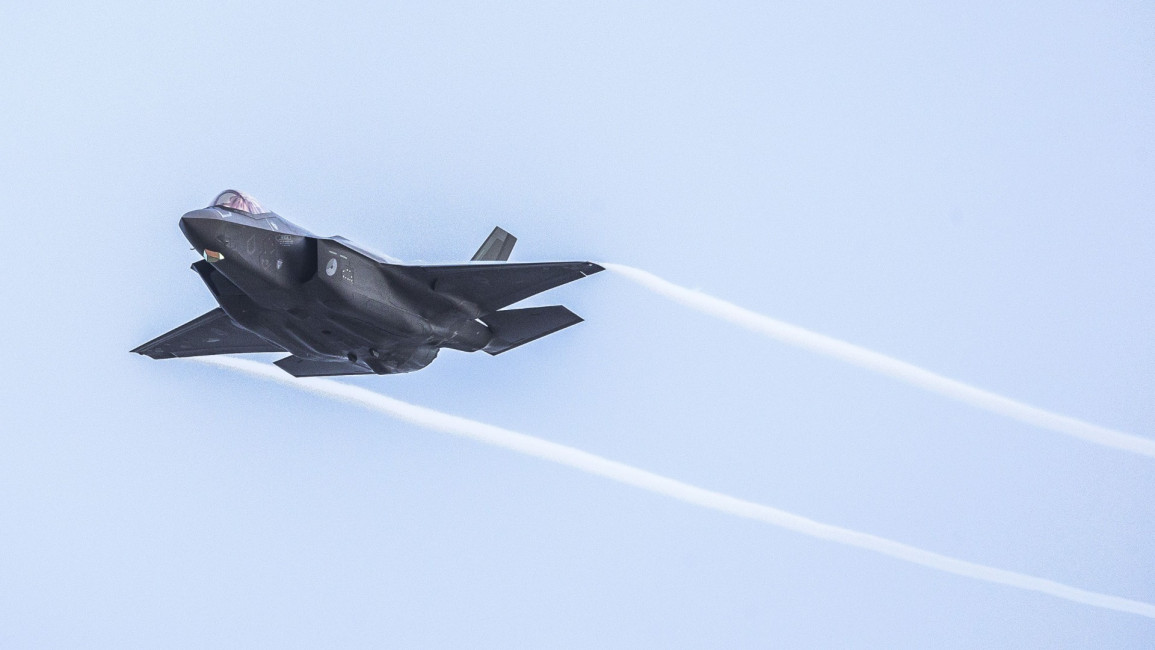Israel to demand more US weapons to counter UAE F-35 deal
Israel has concluded it can't block the sale of US-made F-35 fighter jets to the UAE and will ask Washington instead for more weapons in order to maintain its regional "military superiority", according to a media report.
According to an anonymous source in the Israeli newspaper Yedioth Ahronoth, Prime Minister Benjamin Netanyahu is giving up hope on blocking the US sale of the stealth fighter to the UAE, an issue which has become hugely debated in Israel.
With the option of blocking the sale appearing closed, Israel may look into buy other advanced weaponry or move forward planned arms purchases, the report added.
Israel's minister of intelligence, Eli Cohen, last week said his country would not allow the UAE to procure F-35 jets even with normalisation between the two states.
"We will act to prevent the sale of weapons that will damage the military superiority of the State of Israel," Cohen said during his appearance on the local channel.
Read also: US eyes Saudi Arabia to normalise Israel relations next
"That includes F-35 [deal]. Our priority will be to maintain Israeli military superiority in the region."
The remarks come days after reports revealed that Netanyahu consented to a US plan to sell advanced weapons to the UAE in order to cement its normalisation agreement with the Gulf country.
Publically, Netanyahu had denounced the arms deal when it was made public.
Citing officials involved in the negotiations, The New York Times report claimed that in a private meeting, Netanyahu gave his approval to US officials for a weapons deal involving F-35 planes, which the UAE has for years been attempting to procure.
At the time of the alleged meeting, Netanyahu was involved in broader negotiations to secure a normalisation agreement with the UAE.
Netanyahu faced fierce opposition in Israel, including among defence officials, when news of his acquiescence to the UAE F-35 sale materialised.
The UAE became the third Arab country to agree to normalise ties with Israel, after Egypt signed a peace deal in 1979 and Jordan followed suit in 1994.
Last week, Netanyahu said: "There are many more unpublicised meetings with Arab and Muslim leaders to normalise relations with the state of Israel."
The Palestinians have roundly condemned the accord as a "betrayal" by Abu Dhabi of the struggle to establish a state of their own, incorporating territories seized by Israel in the 1967 Middle East war, with east Jerusalem as its capital.
Follow us on Facebook, Twitter and Instagram to stay connected


![Widespread famine is imminent in Gaza [Getty Images]](/sites/default/files/styles/image_330x185/public/2024-03/GettyImages-2015647000.jpg?h=199d8c1f&itok=mJWWP_Td)
![Around 700 Muslims visited the US Capitol this week to advocate for civil and human rights domestically and abroad. [Photo courtesy of CAIR]](/sites/default/files/styles/image_330x185/public/2024-05/USCMO%2024_Larg%20image.jpg?h=95efc4ee&itok=89WOr8zy)